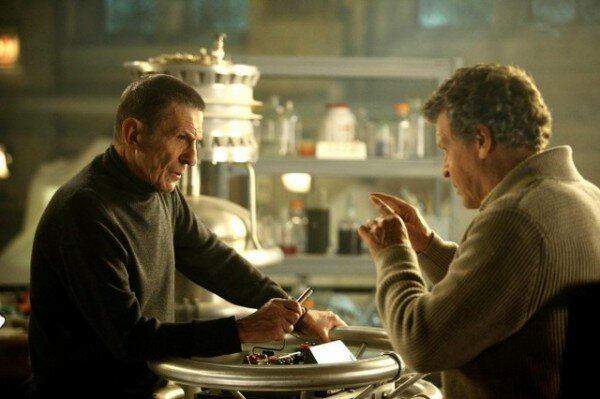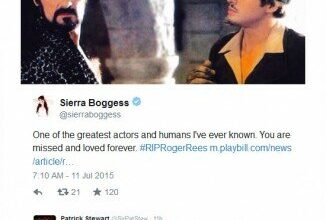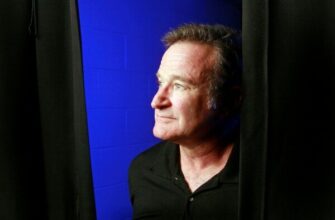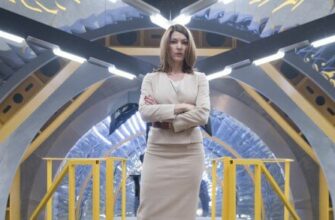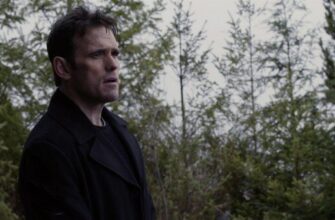Photo Courtesy Of Liane Hentscher/FOX
There are celebrities, you enjoy as a child, but as you get older, for a variety of reasons, your admiration for that person, wears thin, or totally evaporates. Then there are celebrities, you enjoyed as a child and your admiration for that person, increases over the years. Leonard Nimoy was a charter member of that second group for me, an actor who like fine wine only got better with age. “The New York Times,” reported Friday, that Nimoy died at home on Friday morning, at the age of 83. The actor/director/author/recording artist, succumbed to chronic obstructive pulmonary disease, a condition that he announced he had last year. Nimoy, blamed his cigarette smoking as a young man, as the cause of the disease, though he quit smoking at 53.
The Boston native, whose father’s business as a barber, radically increased as his son gained fame, broke into the public’s consciousness, in September of 1966, playing the iconic character Mr. Spock on the NBC series “Star Trek.” Spock was the First Officer and Science Officer for the USS Enterprise, he was also half human and half Vulcan, with his Vulcan unemotional and logical side, mainly dictating his behavior. He wore Beatles bangs and pointy-ears and in an earlier incarnation, looked far more Satanic, than the Spock we came to know and admire.
Although the original version of Star Trek’s now looked upon as a classic for fans of science fiction, the series ratings never were strong, as many people had troubles grasping the concept. Called by many at the time, “A western set in outer-space in the distant future,” series creator Gene Roddenberry, actually used his platform to discuss the issues of the day. The interstellar settings and future time period, allowed Roddenberry to talk issues that would have been far too taboo, to discuss in a series set in the mid-sixties.
Spock was the breakout character of the series, and the foil to the highly emotional ship’s physician, Dr. McCoy, he also augmented Captain William T. Kirk’s bravery and brawn with his logic and intelligence, making the whole greater than the sum of the two parts. However the USS Enterprise, never got to finish its five-year mission, as NBC cancelled the series after the third season.
While Nimoy went onto replace Martin Landau in the CBS series “Mission Impossible,” his former series went into syndication and captivated the nation. Almost every independent and UHF station, were airing the repeats, in some markets multiple-times a day. Long before the Internet, fans of the show found each other, calling themselves “Trekkies,” or “Trekkers,” forming clubs and holding conventions.
After more than a decade of syndicating the reruns, it finally dawned on Paramount, that perhaps fans would like to see further adventures of the Enterprise crew, leading to six-theatrical releases. (Nimoy directed two of the films.) Suddenly Star Trek became a cash-cow, as Roddenberry introduced a new series “Star Trek: The Next Generation,” on his own ad-hoc network. That would start a series of Star Trek series, including a prequel to the original, “Enterprise,” showing earthling’s first contact with other planets and cultures.
Star Trek underwent a reboot at the more than capable hands of J.J. Jacobs, with a new young cast taking over the iconic roles, including Zachary Quinto as Spock, who strongly resembled a young Nimoy. However, if for no other purpose, Jacobs set the reboot in a parallel universe, so that an elderly Spock, portrayed could be in the two films he helmed. One of the best moments takes place during the first movie, as Quinto’s Spock, sees Nimoy’s Spock from the back and calls him father. The elder Spock turns around and says I am not Our father.
Was Leonard Nimoy typecast as Spock? Probably, but it didn’t stop him from playing one of the most entertaining roles of his career, his reoccurring part as scientific-genius William Bell, Walter Bishop’s partner when both men were younger in the FOX series “Fringe.” We actually got two different versions of William Bell, due to some manipulation with the Space/Time Continuum, but both were expertly portrayed.
The first William Bell was a selfless soul, who sacrificed his life to save Walter, his son Peter and FBI Agent Olivia Dunham. The second version was a mad-genius, looking to implode all the parallel universes, killing billions, upon billions of people, to have just one universe with he as the only human inhabitant. Nimoy was strong enough in the role, that any thoughts of Spock never entered my mind.
Although Nimoy had virtually retired, the thought of this planet without him, immediately brought me back to my youth and all the pleasure he brought me over the years. Thanks Mr. Nimoy, Rest In Peace Sir.
